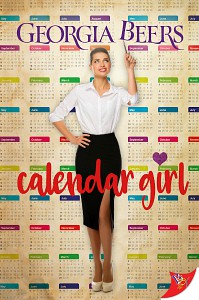Buy this from Bookshop.org to support local bookstores and the Lesbrary!
Last month, I raved about She Loves to Cook, and She Loves to Eat by Sakaomi Yuzaki. It was a pretty solid guess that I would also enjoy Doughnuts Under a Crescent Moon by Shio Usui, as they’re both slice-of-life manga about adult women who fall in love while eating plenty of food (with less of a focus on cuisine in Doughnuts Under a Crescent Moon, to be fair). Both titles also explore the characters’ family lives, develop a strong ensemble, and feature asexual characters discovering who they are and who they love. Possibly my favorite shared aspect, however, is how each series presents the theme of acceptance. That isn’t to say the two series are the same—in fact, having some overlap in topics can make contrasts in execution stand out—but nonetheless, I would happily read other slice-of-life manga in this vein.
Doughnuts Under a Crescent Moon is a complete four volume series following Uno Hinako, an office worker who fixates on being “normal” in hopes of attaining the acceptance of her coworkers, her mother, and herself. To her, this means maintaining both her makeup and her smile, as well as finding a boyfriend. Despite this, she doesn’t develop feelings for any men, nor does she experience sexual attraction to anyone—but when she grows closer to her seemingly aloof coworker, Sato Asahi, she develops romantic feelings for her. Asahi, however, has been too focused on raising her little sister to foster her own relationships. After the first volume, an additional wrinkle occurs when Asahi’s long-time friend shows up out of the blue.
My favorite part of this series was definitely how the relationships unfolded. Even when the characters don’t understand their own wants, or when their desires conflict, they wade through those murky waters. This series celebrates love of all kinds, demonstrating that no type of love is lesser than any other, while acknowledging the heartache and complexities that love brings. Conflicts between characters are not introduced and drawn out for the sake of pointless drama, but exist to explore these complexities and push the characters to grow more fully into themselves. Without spoiling anything past volume one, I wasn’t initially sure whether I would enjoy the addition of the final character I mentioned, but her arc ended up being one of my favorite aspects of the story.
As I said, this series focuses on the idea of acceptance. While She Loves to Cook, and She Loves to Eat uses the motif of cookie cutters to represent that people come in all forms, Doughnuts Under a Crescent Moon posits that like both doughnuts and phases of the moon, people don’t have to seem whole in order to be worth cherishing. As also stated, both series feature asexual protagonists. In She Loves to Cook, and She Loves to Eat, the words asexual and lesbian are used and defined on the page. While of course there is a place for works that explicitly label and describe sexuality, I appreciated how Doughnuts Under a Crescent Moon manages to show the characters working through their feelings without having to break out an infographic. Having words for your identity can be incredibly important, but it can be equally important to show characters simply experiencing these feelings and being able to create their own happiness, regardless of what terminology they have access to.
To be clear, none of these comparisons are meant to undermine either work. I do, however, have to say that after reading Doughnuts Under a Crescent Moon, I had renewed appreciation for how the art and storytelling in She Loves to Cook, and She Loves to Eat managed to feel grounded in a way that suited the maturity of its characters, while maintaining those classic shoujo blushes and warm fuzzy feelings. At times, the execution of Doughnuts Under a Crescent Moon didn’t feel particularly distinguishable from a high school manga. The mangaka even mentions in one author’s note that the characters are almost like teenagers at times, so perhaps it was intentional to bring this youthful feeling to a story about adult characters.
Ultimately, this series may have based its motifs around the idea of not being whole, but it certainly didn’t leave me feeling empty.
Content warnings: one instance of homophobia from a family member, depictions of pressure for women to conform to femininity and heteronormativity, and an occasional appearance from a boss who is a bit of a creep



